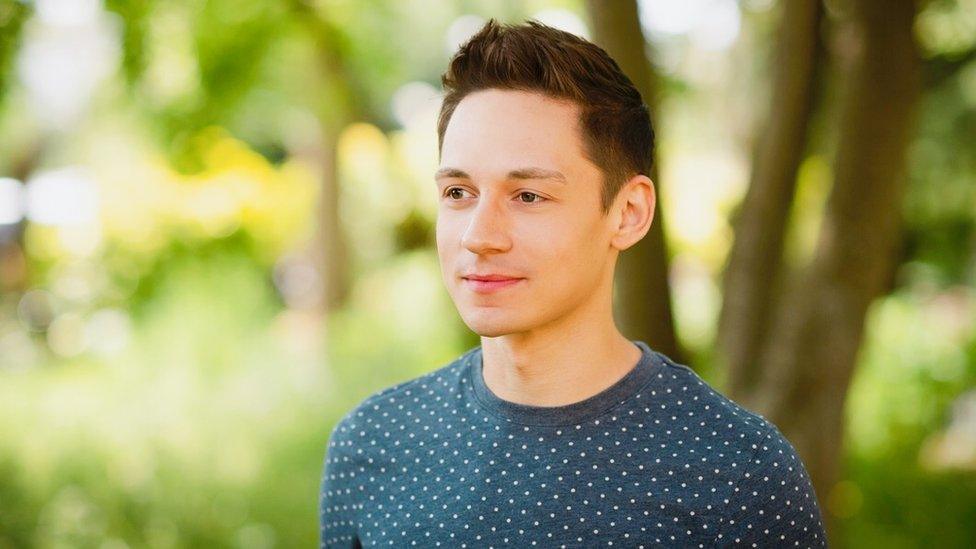Eating disorder psychologist 'made patients sicker'
- Published
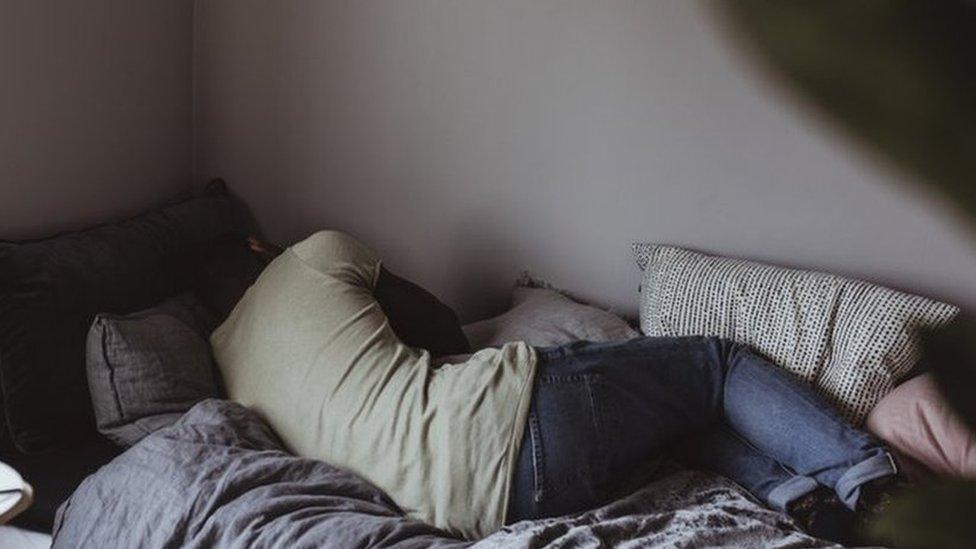
Multiple women claim they faced inappropriate behaviour while undergoing therapy at the Individual Clinic
Warning: This article contains text of a sexual nature
Nearly a dozen sick and vulnerable young women turned to a private specialist eating disorders clinic in Bath hoping they would receive life-changing treatment.
The women say their mental and physical health quickly deteriorated while the "dangerous" therapist in charge made them sicker and subjected them to psychological abuse. The clinic has since closed its doors but the former-patients say they have been left with life-long scars and want answers.

Catherine, Emma and Anna did not know each other at the time - but all were grappling with disordered eating when they first encountered a therapist called Anna Auty in the early 2000s.
Her inpatient centre, called the Individual Clinic, advertised a novel approach to treating eating disorders, drawing on her own experiences of recovering from anorexia.
But while sessions at the centre started off normally, the former patients say that the therapy started to become unsettling and strange.
Anna, who struggled with emetophobia - a fear of vomiting - says she was told by Anna Auty that she could "create illness and cancer" in her body by her "thoughts alone".
"I became so anxious about my health that I started to feel that I was really ill. I started to doubt my body's ability to function, to cope."
"I believe she wanted to make people sick, and keep people sick," Anna said.
Clinic therapy 'sexually inappropriate'
Anna Auty charged upwards of £1,000 a week for live-in care at the clinic, according to former patients.
The BBC has spoken to ten former patients and staff members who say inappropriate behaviour was presented as necessary treatment, and patients became sicker under her care.
If you have been affected by the issues raised in this article, help and support is available via BBC Action Line
Former patients said that meal plans were unstructured if they existed at all, sometimes consisting of a single piece of dry toast per day.
Some patients say they were encouraged to look at graphic pornographic videos as part of their "therapy".
One describes being told to stand nearly-naked in front of a mirror while Anna Auty commented on their body.
Listen to more on this story on File on 4 on BBC Radio 4 at 20:00 BST
Anna Auty's website described her as a health psychologist. Since 2010, this has been a protected title regulated by the Health and Social Care Commission, but at the time, in 2006, it was not. She also referred to herself as a "practitioner", which is not a protected title.
There is no evidence that Anna Auty was registered with any professional mental health authority, nor that her clinic was registered with the CQC. As her clinic did not advertise medical services, she did not necessarily need to be registered with the CQC.
But what this did mean was that no one was assessing the safety of the unit she was inviting women to move into.
'Surgery as therapy'
Former patient Emma - not her real name - was admitted to the clinic with anorexia when she was 20. She says Anna Auty became "obsessed" with discussing her body and her genitalia during therapy sessions.
"It didn't seem to matter how many times I said my eating disorder is a control issue, it was never believed," Emma said.
"She would question constantly whether I was happy with every part of my anatomy, and I eventually admitted I'd always been a bit worried about the appearance of my vulva.
"She said that was the reason and the catalyst for my eating disorder - it felt like this train that suddenly went off."
Emma says that Anna Auty organised for Emma to undergo labiaplasty surgery at a clinic in London, to reduce the size of her labia.
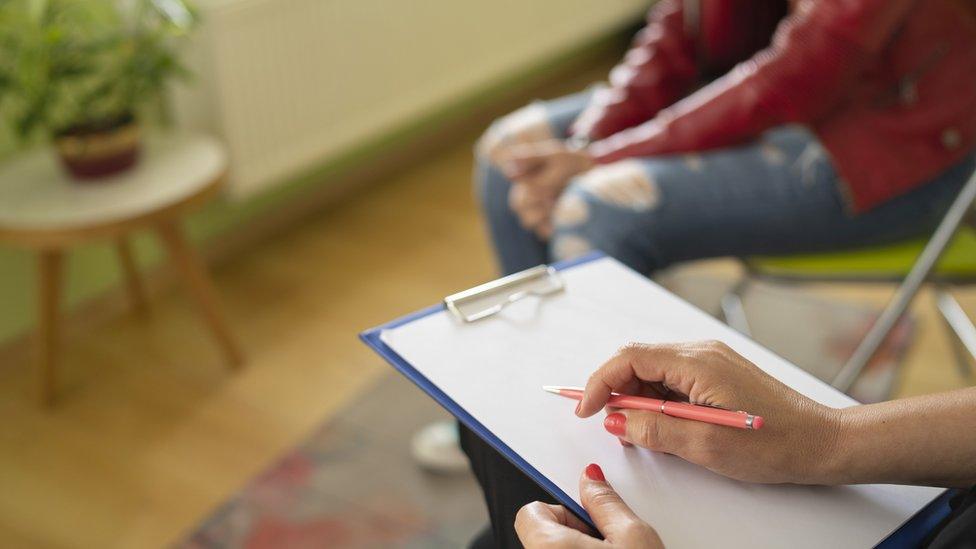
Patients say they suffered coercion and psychological abuse under the care of Anna Auty
After the surgery, Emma says that Anna Auty carried out "examinations" of her vagina to "check she was healing".
"She didn't touch, she would just check the stitches.
"I trusted her. Looking back, there was coercion. There was psychological abuse."
Emma left the clinic after six weeks to return to university, but says the mental and physical impact of her time at the clinic has never left her.
Dr Jessica Taylor is a psychologist and founder of Victim Focus, an organisation which trains professionals to support victims of abuse.
"There is no therapeutic value in this whatsoever," she said.
"Even if someone told you that I hate this part of my body and wish I could have cosmetic surgery, as the psychologist you would still just be the person holding the safe space - never pushing them."
Like Emma, former patient Catherine says therapy sessions with Anna Auty increasingly focussed on her feelings about her body and sexuality.
Catherine says she was subjected to a so-called treatment plan which was described as an "Intimacy Weekend". She paid £700 for the three day course, which she says Anna Auty said would improve her confidence.
But Catherine says that the experience left her "broken".
The BBC has seen a report of this weekend written by Anna Auty, detailing the "treatment".
In the report, Anna Auty states that Catherine requested her to come into a room and stand behind a privacy screen while Catherine used a vibrator which Anna Auty had encouraged her to use.
But Catherine says this is not what happened.
"She made me watch pornographic videos. She told me I needed to go into a room with her and masturbate - she said having an orgasm would help me get better.
"She came into the room and gave me tips."
"I feel like she used me as her little puppet," Catherine said.
Finding Anna Auty
Anna Auty offered therapy services for almost a decade.
Catherine says she was one of the last patients to leave Anna Auty's clinic in 2008 and, shortly after she left, the Individual Clinic closed its doors for the final time.
Since closing the clinic, it is unclear whether Miss Auty has continued to practice as a therapist or psychologist.
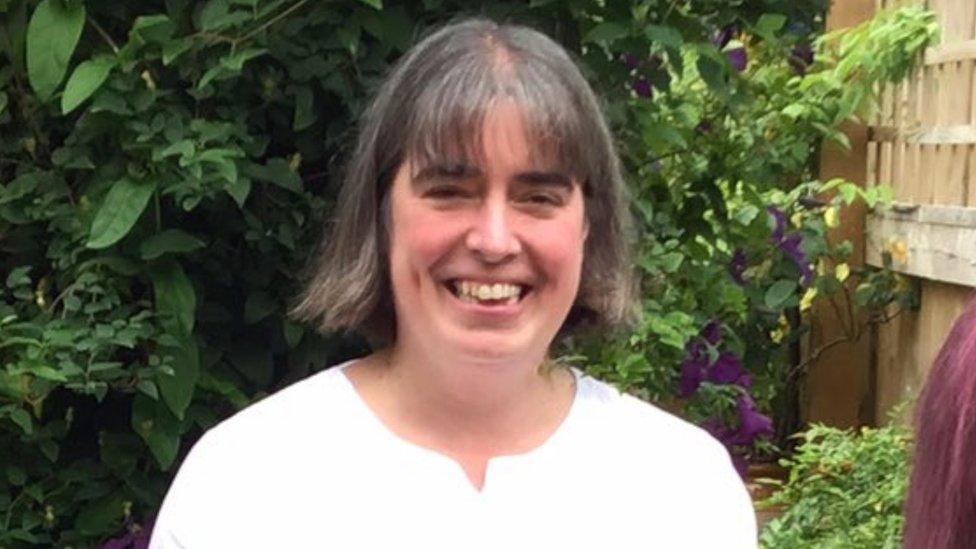
Anna Auty charged upwards of £1,000 a week for live-in care at the clinic
There are a number of reviews on a local Bath business website from 2009 up to 2018 referencing Anna Auty, with one claiming she presented herself as a "spiritual guide".
Both Anna and Catherine reported her to police on two occasions several years later, in 2015 and 2020.
Avon and Somerset Police told them there was not enough evidence a criminal offence had taken place and no further action was taken.
The BBC asked Anna Auty to respond to the allegations. She did not reply to multiple requests for comment.
Kerri Fleming, head of safeguarding at the BEAT eating disorder charity, said the impact of poor treatment can be lifelong.
"If someone has had a difficult experience, they may find it hard to trust again in the near future," she said.
"These recovery journeys are long - they could go on for years."
Legally, anyone can call themselves a therapist or a psychologist. The Health and Care Professions Council does not regulate the title "psychologist" alone.
Former patient Anna worries that other therapists and psychologists could take advantage of a lack of regulation to set up harmful practices, like Anna Auty's clinic.
"Essentially, our experience has told us that anyone can set up an eating disorder clinic and be completely unaccountable for that," she said.
"If I go and see a GP, or a cardiologist, they're qualified. But why is my mind any less important than my heart?"
If you have been affected by the issues raised in this article, help and support is available via BBC Action Line

Are you affected by the issues raised in this story? You can get in touch by emailing haveyoursay@bbc.co.uk, external.
Please include a contact number if you are willing to speak to a BBC journalist. You can also get in touch in the following ways:
WhatsApp: +44 7756 165803
Tweet: @BBC_HaveYourSay, external
Please read our terms & conditions and privacy policy
If you are reading this page and can't see the form you will need to visit the mobile version of the BBC website to submit your question or comment or you can email us at HaveYourSay@bbc.co.uk, external. Please include your name, age and location with any submission.
Related topics
- Published23 November 2022
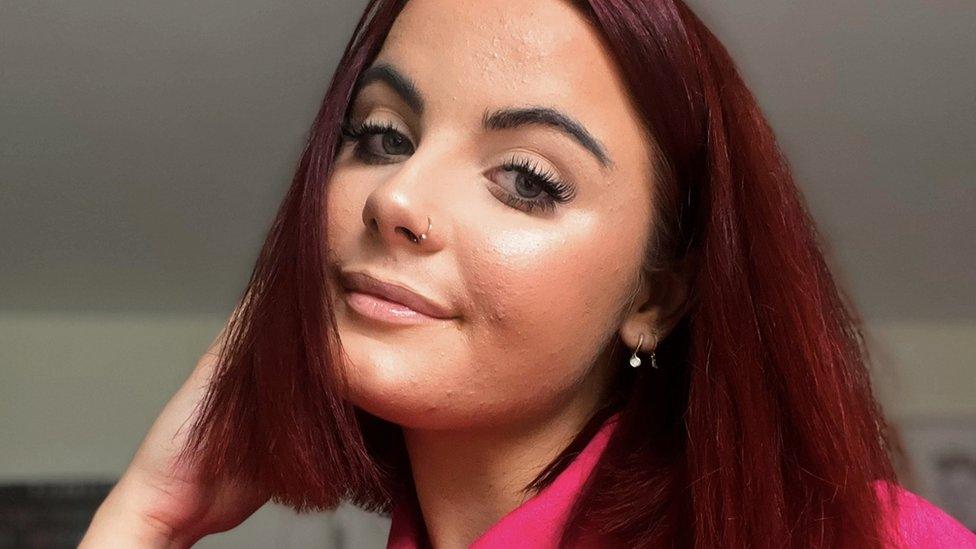
- Published16 June 2022
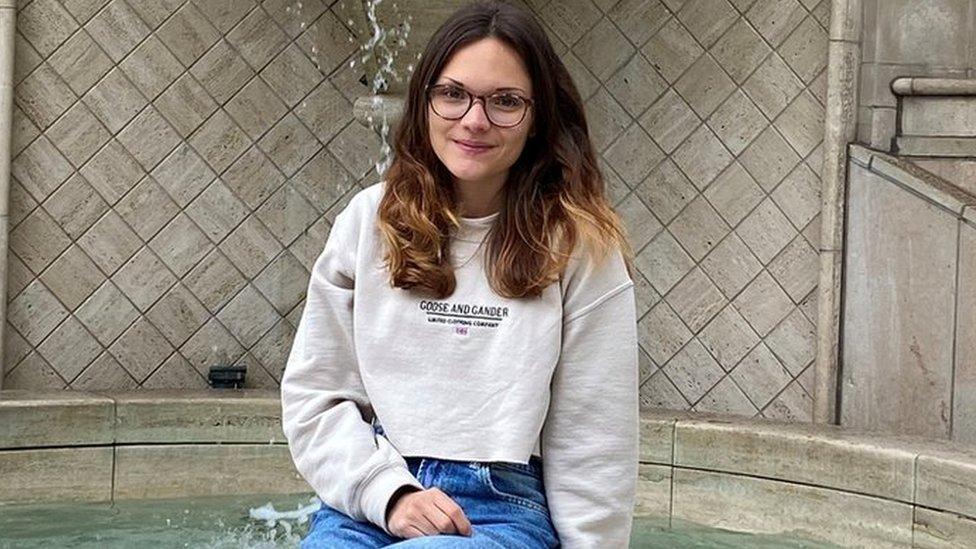
- Published19 May 2022
